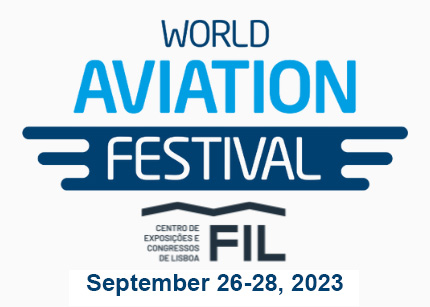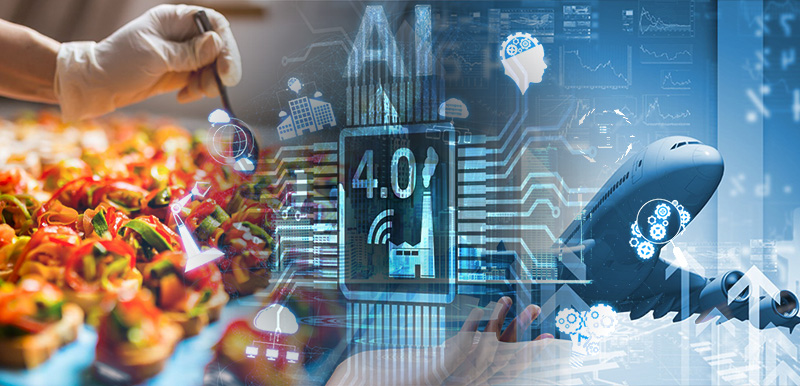AI is Transforming Everything from Airlines to Food Service
On the surface, the airline industry couldn’t be more different from foodservice. Airlines are B2C, primarily selling directly to passengers, but foodservice is primarily B2B. The airline industry provides transportation services, operating globally with a physical presence of aircraft and staff at airports. Conversely, the foodservice industry operates across various physical establishments from food distributors, to restaurants, primarily catering to localized populations, and they are more community-focused. While air travel is influenced by business and tourism, foodservice is shaped by local demographics and culinary trends. The complexity of supply chain logistics of airlines arises from managing routes, aircraft, and crews, while the foodservice industry focuses on sourcing ingredients and service quality. Airlines are highly capital intensive with high fixed costs tied to fuel price, whereas the foodservice industry has lower fixed costs linked to labor.
Despite these differences, both industries are eager to learn about AI and are ready to leverage its power to transform their business. This is evident by the fact that I will be speaking at both an airline conference and a foodservice conference later this year, even though I am relatively new to both industries. Shameless plug aside, this is a clear sign that AI is not like any technology. Its impact is significant and far-reaching, as it’s not limited by industry, domain, or business function. This makes AI comparable to technologies like the steam engine, electricity, and computers, which have sparked industrial revolutions in the past. And this is why some people said that AI will catalyze the 4th industrial revolution.
World Aviation Festival – Lisbon Portugal: Sep 26
I am very privileged to be giving a workshop at the largest aviation tech conference in the world – the World Aviation Festival (WAF), even though PROS has many more qualified experts than me. This festival gathers ~5000 aviation professionals, industry experts, thought leaders, and technology providers from around the world. It also serves as a platform for the most senior leaders in aviation to discuss and explore the latest trends, innovations, challenges, and opportunities in the industry. As someone who is still learning about the hugely complex airline industry, I am deeply honored to share my knowledge and experience in AI with this distinguished audience.
The AI Transformation: From Revenue Management to Customer-Centric Retail
Abstract: In the realm of airline operations, striking a balance between customer centricity and profitability has been challenging. While revenue management (RM) aims to optimize earnings, ensuring exceptional passenger experiences remains a human-intensive endeavor, especially during travel disruptions.
The emergence of AI unlocked the potential for automating complex workflows that were once reliant on human expertise. By anticipating traveler preferences, optimizing pricing, and personalizing offers, AI will enrich experiences while driving revenue and potentially trimming costs. This workshop takes you on a transformative journey that explores AI’s role in evolving RM into an AI-powered retail. This will empower airlines to embrace a more customer-centric approach to travel and reshape the industry’s future.
What’s unique about this workshop is that it’s a perspective from an outsider, like myself, who can reexamine the challenges that airlines face with a fresh pair of eyes. I have been working in the tech industry for many years, and I have seen firsthand how AI can be used to solve complex problems. So I am excited to share my learnings and insights with you to explore how AI can help you transform your airline’s RM while improving customer experience (CX).
This workshop is also in-depth, as it goes into the technical details of where and how AI is used to break down the silo operations within an airline in order to provide a better CX. Moreover, it doesn’t shy away from the mathematics behind how certain machine learning (ML) algorithms work. Yet, this workshop is highly visual and entertaining. It’s designed to provide a good intuition behind the intricate tech and math for a non-technical audience. So it should be accessible even to the layperson.
So, as long as you are interested in learning how AI can help transform your RM into a customer-centric retail, we got you covered through all the complexity behind willingness-to-pay estimation, offer personalization, and revenue maximization. I hope I will have the opportunity to meet you in person at WAF.
IFMA – Phoenix AZ: Nov 5th
Later this year, I will also be giving a completely different workshop to a delegation of foodservice executives at the International Foodservice Manufacturer Association’s (IFMA) Presidents Conference. This conference is the premier industry forum for foodservice management and senior leaders representing a total of over $700B of businesses across the supply chain. Needless to say, the supply chain has been disrupted since the onset of the pandemic. This disruption has been further exacerbated by the ongoing geopolitical conflict in Ukraine, which is particularly detrimental to any food-related industry.
Under this premise, the foodservice industry has dramatically different needs from the airlines. Compounded by the current economic conditions, it has become imperative for foodservice to improve their profitability. This is where AI can help. And I am proud to share the details of several recent AI innovations that made AI profit optimization possible.
The AI Goldmine: Digging Deep into Profit Optimization
Abstract: In today’s highly volatile business environment, profitability has suddenly become imperative for many organizations. Thanks to ChatGPT, businesses today have access to powerful AI solutions. And decision-makers are not only more familiar with AI, they are also ready to leverage it to revolutionize their profit optimization strategies. Although the AI market landscape is literally a huge gold mine, it’s also a mixed metal deposit with many metals of lesser value. So how do you strike gold?
As we dig into the profit potential of AI, we’ve discovered 3 untold secrets. Since the profit equation is simple: Profit = Revenue – Cost, the first secret to profit optimization is the ability to manage both terms in this equation. Second, is the ability to estimate costs through the lens of opportunity cost. This market demand-driven cost estimation is a game-changer in the quest for sustainable margins in a world where the supply chain is being restructured. Finally, we need to elevate our methodology with AI-driven pricing optimization in order to transcend the constraints of the traditional segmentation approach.
Join us to demystify AI profit optimization. This session will reveal the secrets to AI-driven profitability in an evolving world with growing uncertainties. We will show you what it takes to separate gold from the ores in this vast AI gold mine.
What’s interesting about this workshop is that the basic concept behind profit maximization is very simple. However, achieving this reliably under all the extreme market conditions is very challenging, and the AI technology making this feasible didn’t even exist until recently. So despite the abundance of AI tools out on the market that optimize price, few can help you maximize profit consistently. This workshop will provide decision-makers the knowledge to distinguish the real thing from the pretenders.
Curiously, by offering a market-competitive price faster and earlier in the buying cycle, foodservice buyers also get a better CX. This will reduce unnecessary negotiation and shopping around, which saves valuable time for the buyers. Consequently, AI profit optimization can benefit foodservice companies not only by improving margins, but also by increasing efficiency, which further drives profitability.
The AI behind all this is truly fascinating. I am already eager to give this workshop as I prepare it, as I believe it will be insightful and impactful. I hope you will enjoy it as it will be delivered for the first time when we meet in Nov.
Conclusion
After all, the airline and foodservice industries do share some similarities upon closer examination. Certainly, both are subject to regulations: airlines must adhere to stringent aviation safety standards, and food service establishments must maintain rigorous hygiene and health requirements. Beyond regulatory compliance, both industries have strong incentives to be more customer-centric, driven by the need to stay competitive in a digital world with mobile devices and social media everywhere. Furthermore, both sectors have had to navigate through the challenges stemming from a tumultuous sequence of global catastrophes in recent years. It is serendipitous that AI emerges as a common solution to address these challenges.
Both airlines and foodservice companies are harnessing various forms of AI to tackle their respective issues. This underscores the remarkable versatility of AI as it adapts to serve diverse needs within these industries. In the wake of the 4th industrial revolution, AI stands as a unifying force, enabling businesses across very different sectors to not only survive but also thrive amid these unprecedented challenges. Its potential to improve business performance, efficiency, and the overall customer experience makes it a pivotal tool for all industries as they continue to evolve. It’s definitely an exciting time to witness how different industries embrace AI to help them navigate this industrial revolution – the intelligence revolution.




